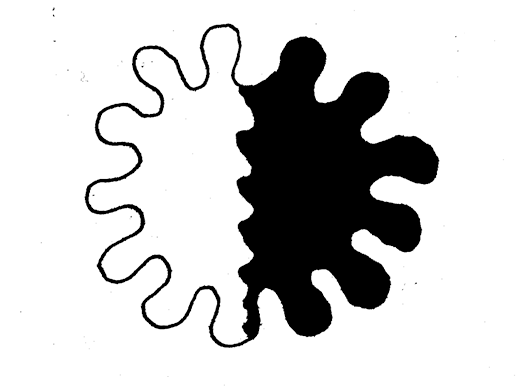«One of the most neglected works of Louis-Ferdinand Celine is his first published one […] Semmelweis is by no means what one would expect today from a medical thesis. First of all, it is a purely biographical work that does not address Semmelweis’s theories from a medical or scientific standpoint.»
Ifri, Pascal A., A Reconsideration of Celine’s Semmelweis, from Questia
Hi!
If you receive this aperiodic newsletter it means you’re still friend with someone who in the last two years worked hard to create Scienceground, a space-time for open conversations on science, technology, and society. You can hear its first wails here. At the very beginning we named ourselves “small temporary scientific community”. Yet we are still around, and growing in number… therefore we now like to call our community ExTemporanea.
If you feel we are being too invasive, our apologies: the unsubscribe button is at the bottom. But please let us know why you press it.

So, without further ado: look for it in your own bookshelf. Compulse your best friends’ bookshelf. Ask them to ask their best friends if they own it. If that doesn’t work, borrow it at the nearest public library. If they lended it out already, stroll to your favourite bookshop and ask the librarian. If all of that doesn’t work, place an order online for a used copy, and try some form of conversation with the sender. And if ultimately you cannot avoid resorting to some impersonal delivery service, at least offer coffee to the delivery man…
What we are after is Semmelweis by Louis-Ferdinand Celine.
The rules of the game are:
- get a copy of the book;
- read the book within four weeks from now;
- compulse further references either about or suggested by the book;
- wait for further instructions.

ExTemporanea is a community of students and researchers involved in new forms of conversation about the role of science in society and of society in science.
In our attempt to go beyond commonplace scientific storytelling, we could choose among two paths: focusing on the technical aspects, or engaging with the social implications.
We chose both! Because we are strongly convinced that it is only understanding the subtleties of science that one can construct a society that copes with technology; and it is only understanding the subleties of social behaviour that one can understand how scientists study nature.
Our ideal is to make this conversation as fun as possible and as rigorous as necessary. Most importantly, we want to make it into a tool of empowerment, something that people can actually use to get a better grasp on the world they live in, and act by consequence.
One of the activities that took place during Scienceground 2 was an [on-spot podcast][#4] station (only in Italian, for the moment). With a microphone in hand we wandered around the city, capturing voices and stories from scientists attending the festival. Those stories converged into three podcast episodes, each of which developed around the voice of one or two scientists. Intentionally the podcast series is “non-structured” as a sort of stream of consciousness moving across various aspect of the scientific process such as ethics, creativity, controversy, method… In the spirit of contamination between different forms of art, the storytelling is only interrupted by moments of selected music.

ExTemporanea has no precise boundaries and no pressure to establish any. Scienceground is still a very experimental project: there are lots of practical things on which we want to improve and improvise, and we need the eyes, ears, hands, minds and enthusiasm of all the people who want to participate. So, don’t be shy! If you think you have an idea on how you can help, let us know. As the conversation grows, we will eventually build tools of discussion and participation.
So, stay tuned!
ET
